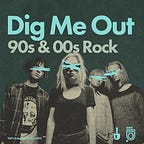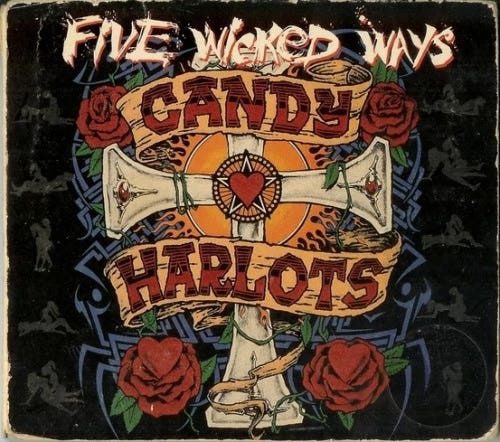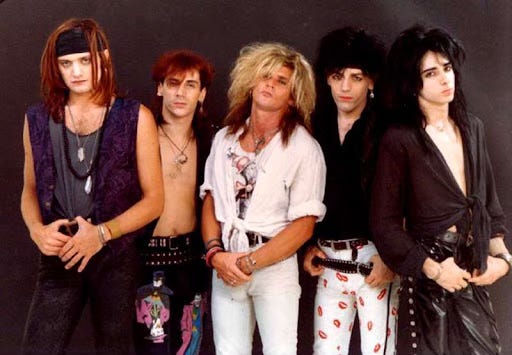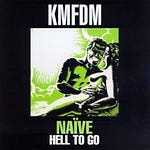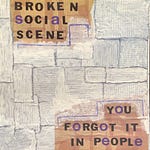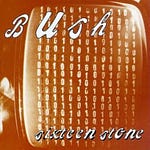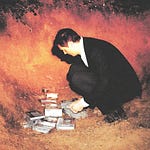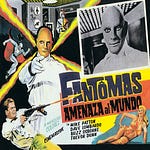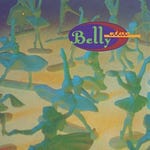This week’s episode dives deep into an album selected by Gavin Reed, longtime DMO Union member and our go-to expert on Australian rock gems. Gavin joined us from across the planet (literally past midnight his time) to share the Candy Harlots’ tragic tale of perfect songs released at the worst possible moment.
Want to pick an album to dissect on a future episode? Join the DMO Union and get voting rights on upcoming albums, plus access to bonus episodes, our private Discord community, and the satisfaction of keeping this podcast ad-free while supporting our mission to dig out the albums that deserve another listen.
Ever wonder what happens when a band gets everything right except the calendar? Meet the Candy Harlots, Sydney’s most spectacularly mistimed metal act—a cautionary tale wrapped in leather pants and topped with hair that defied both gravity and common sense.
It’s 1987, and hair metal is king. Virgin Records comes knocking after just three shows, waving a contract that could’ve made these guys the next Skid Row. Their manager turns it down. Four years later, they finally get their deal, only to release their lone album Five Wicked Ways in May 1992—right when Kurt Cobain was teaching the world that flannel was cooler than spandex.
You couldn’t script a more perfect disaster.
The Spinal Tap Chronicles
The Candy Harlots story reads like rejected Spinal Tap material. They started in ’87 with the classic lineup shuffle: five different singers, four different names (including the gloriously ridiculous “Helter Skelter”), and enough personnel changes to make your head spin faster than a drum solo. By the time they cut Five Wicked Ways, only drummer Tony Cardinal remained from the original crew.
Want to know how surreal this band’s trajectory was? Founding guitarist Ron Barrett died from an asthma attack at 26. When a band loses members to something that mundane rather than the usual rock ‘n’ roll excess, you know the universe has a twisted sense of humor.
But here’s the kicker—Virgin Records, the same label that initially wanted them, came crawling back in 1991 after their management deal expired. “Hey guys, we noticed you haven’t hooked up with anybody. Would you like to sign with us?” Talk about twisted irony.
Sounds Like Bon Jovi, Times Like Nirvana
Here’s what makes the Candy Harlots tragedy so compelling: Five Wicked Ways actually rocks. Hard. The album captures something genuine about late-80s hard rock that most bands missed—that sweet spot between Bon Jovi’s blue-collar storytelling and the rawer edge that was starting to creep into rock production.
The lead single “Sister’s Crazy” sounds like it could’ve been ripped straight from New Jersey-era Bon Jovi. Hell, the resemblance is so uncanny you can literally sing “In and Out of Love” over “The Other Side of Love”—they’re in the same key. But instead of Jon Bon Jovi’s polished suburban anthems, you get something grittier, nastier, more authentically working-class Australian.
The guitar tones on Five Wicked Ways hint at what was coming in the ‘90s—less produced, more live-sounding, with actual finger noise and string buzz that the big-budget 80s productions would’ve scrubbed clean. It’s like hearing the future of rock filtered through the past’s ambitions.
The Australia Problem
There’s something uniquely Australian about the Candy Harlots’ failure that goes beyond bad timing. Australia just doesn’t embrace theatrical rock poses the same way America does. While the States were eating up spandex-clad excess, Australian audiences looked at the hair metal costume and asked, “What are you dressed as, you clown?”
While their contemporaries like the Screaming Jets succeeded by looking and sounding authentically Australian—like actual people who might say the things they were singing—the Candy Harlots committed to the full American hair metal costume. Leather vests, headbands, poses that would make Poison blush. In Australia, that reads as fake.
They were singing about crossing state lines and packing heat in a country where you just drive across the border and there are no guns. Every American reference pulled Australian listeners further away from caring.
The Songs That Deserved Better
Strip away the tragic timing and cultural missteps, and you’ll find an album full of songs that stick. “Lady Shakes” has the kind of memorable chorus that made Bang Tango briefly relevant. “Backstreet Boys” (not about the boy band) channels Def Leppard at their hookiest. “What Are We Fighting For” sounds like Bon Jovi covering Aerosmith—which shouldn’t work but somehow does.
The production walks a fascinating line between 80s polish and 90s grit. The guitars sound like Les Pauls played loud rather than the hyper-processed tones dominating late-80s metal. It’s accessible enough for mainstream radio but edgy enough to avoid complete cheese—exactly the balance that could’ve worked if released when these songs were written.
The Endless Epilogue
After Five Wicked Ways disappeared into the cultural void, the surviving members scattered across the Australian rock underground like shrapnel from a stage pyro gone wrong. The list of post-Candy Harlots band names reads like a greatest hits of intentionally ridiculous rock monikers: Soggy Porridge, Flog Puppet, Angry Snuff Puppet, Machine Gun Fellatio, and Jerks Incorporated.
Some found success—Mass Appeal actually became “a really good band”. Others, like Machine Gun Fellatio, carved out their own strange niches in Australian alternative rock. But none ever recaptured whatever lightning the Candy Harlots briefly held in 1987.
The Cruel Mathematics of Rock History
Five Wicked Ways peaked at #32 on the Australian charts—respectable but not spectacular. The Foreplay EP hit #17 earlier that year, proving there was still appetite for this sound. But by May 1992, that appetite was rapidly disappearing. Nirvana’s Nevermind had been steamrolling the charts since September 1991. Pearl Jam’s Ten was ascending. The cultural moment for big-haired Aussie rockers singing about American dreams had already passed.
Here’s the brutal irony: if Virgin Records had signed them in 1987 when they first showed interest, the Candy Harlots could’ve ridden the late-80s metal wave alongside Skid Row, Warrant, and every other band that struck while the iron was hot. Instead, they became a footnote—a “what if” story for anyone curious enough to dig into YouTube uploads of forgotten albums.
The Candy Harlots represent something universal about rock dreams deferred. Every scene has bands like this—acts that did everything right except time the market. Their story resonates because it’s equal parts tragedy and farce, ambition and miscalculation.
Five Wicked Ways deserves to exist as more than a curiosity for metal completists. These songs capture a specific moment when Australian rock was trying to figure out its identity, caught between homegrown pub rock authenticity and imported American excess. The album’s failure illuminates why some bands become legends while others become trivia questions.
In the end, the Candy Harlots proved that in rock ‘n’ roll, talent without timing equals tragedy. They wrote the songs, learned the moves, struck the poses—but showed up to a party that was already over.
Sometimes the most honest thing you can say about a band is that they deserved better. The Candy Harlots definitely deserved better than 1992.
Songs in this Episode
Intro - Backstreet Boys
21:19 - Danger
23:15 - The Wildest Way
32:44 - What Are We Fightin' For
38:32 - The Lady Shakes
41:35 - Cheat On Me
Outro - Sister's Crazy


